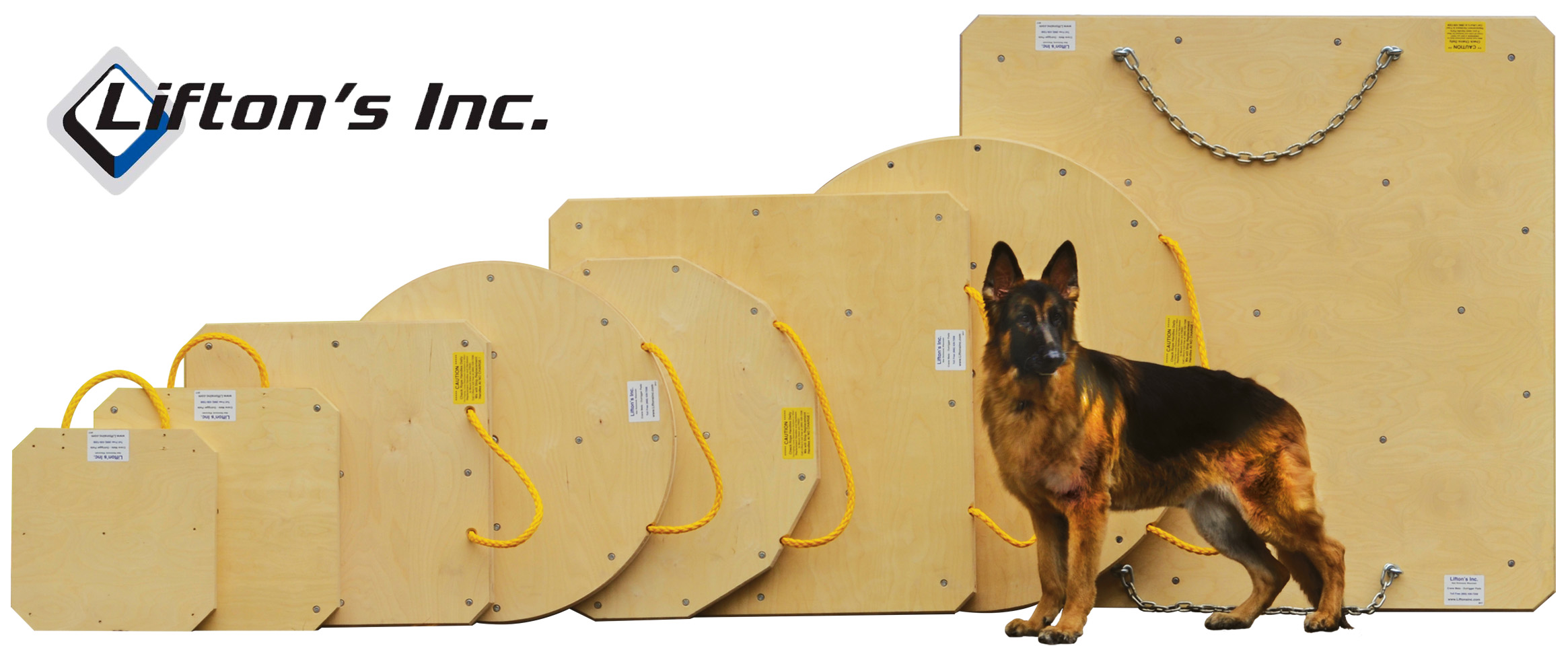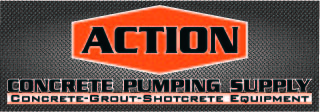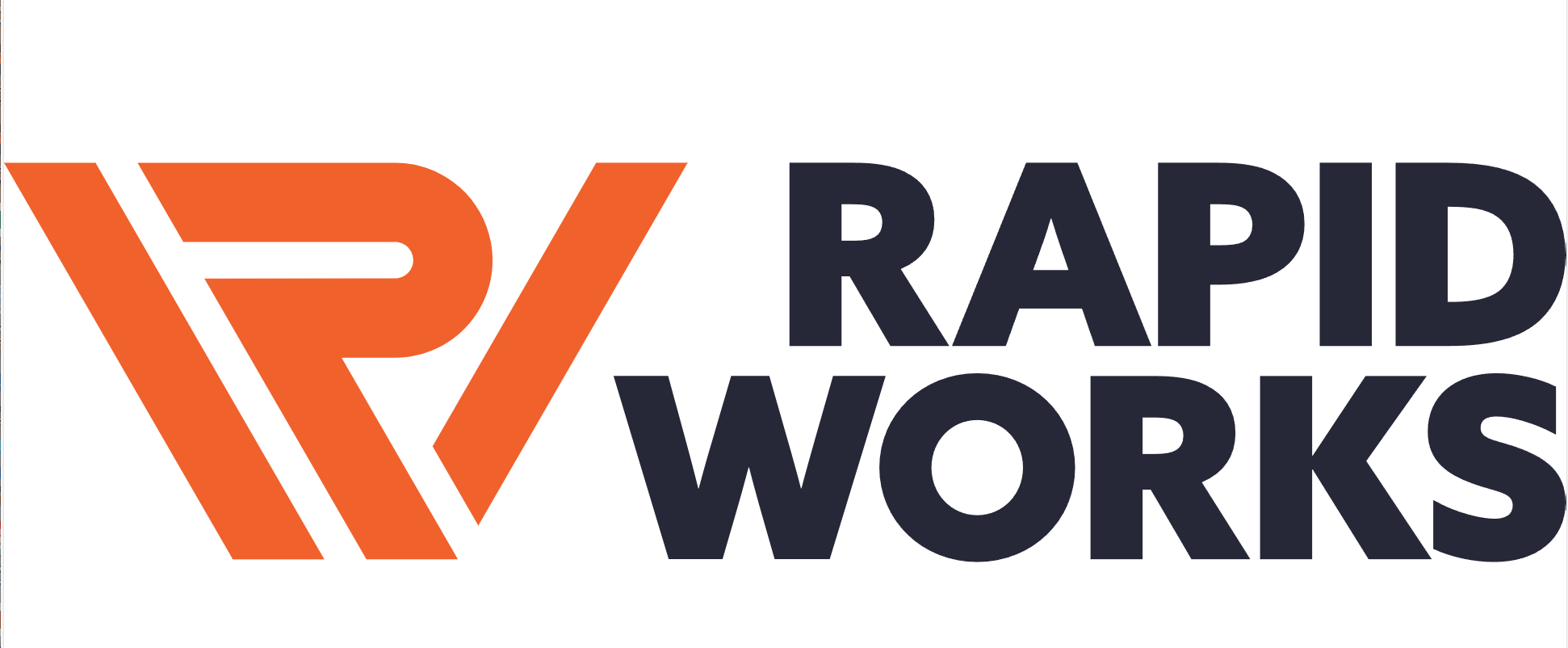Selling Pumping Service
Selling Pumping Service
PREFACE
T purpose of this book is to help everyone who has chosen a career in concrete pumping to become the best they can be. There is information from many years of experience and ideas on how to operate a successful business as well as a how to operate a first class pump job. Better understanding of every aspect of the business and having the knowledge readily available to managers, salesmen, mechanics and operators is now possible with the Internet. This publication is a by-product of the greatest medium man has ever seen the World Wide Web. Concretepumping.com has worked to serve the industry and help with promote growth in the concrete pumping companies around the world. With the ability to post and display new ideas and get instant feedback from the members of the pumping community, we are now able to assemble many of these things and present them to you in the form of a reference book. The idea is to promote growth and safety while bettering the industry allowing everyone to prosper. Since we are in a specialized business, and the variables are ever present, we can all learn from the other guys across the country and around the world. This is not a place for competition between one manufacturer and another. Nor one pump company and its competitors. This book will take the best ideas from the web-site and all it’s contributors and compile it into an easy to use guide that can be a reference or simply a guide for the employees of the pumping industry. We are not trying to dictate policy in this publication; we are trying to provide a single reference point for safety regulations, manufacturer recommendations and the experience of a few good men. This will be in a form that applies to all pumps and all employees. As always, we want everyone to learn from our efforts but expect everyone to follow their companies’ policy on each subject. This is an attempt to educate and create a climate of better understanding with facts and bits of policy from all over the world. We all do things a little differently, and the way we do many things could possibly be improved upon with something to compare to. It is the goal of the writers and publisher to promote safety and growth.
Disclaimer
The purpose of this publication is to share ideas and to provide a basic understanding of concrete pumping. It is not the intention to dictate policy or to endorse any particular type of equipment, method or business practice. We cannot be held responsible for the way any of the contents are applied or interpreted, or the result there of. As always, check with your employer regarding your companies policy and check with your local authorities regarding certain laws and regulations. The contents should be viewed as suggestions. We do not accept responsibility for the unfavorable outcome from application of any information obtained from this publication. Anything obtained and utilized from herein, is done so at the risk of the reader, not the writer or publisher.
SELLING PUMPING SERVICE
The purpose of this topic in a guidebook is simple. I want everyone to have an understanding of the others job. I want a team in every company. I want you to all are as good as you can be, and to have the skills that are required to do so. If you are a salesman, you may be able to better yourself by reading this. If you are thinking of becoming a salesman for a pump company, please read this and learn. That is the goal, to learn.
As we all know, these days it takes sales people to get work. Unless you are in a one-horse town and the only service around, you need a sales professional. If you are sales pro, then Bud, this is for you!
Sales depend on several things. A product, a customer and a presentation. In concrete pumping we sell service. That is what we are, a service company. It’s different from selling a tangible thing, like a car or paper clips, those are products. Put them in front of the right people and they will sell. The service is more like selling a promise. The customer does not see what you are offering when you are at his office; he hears your promise. Your pitch. The customer often knows only what you have told him about your company and will expect exactly what you promised him. As a customer, he will look at the cost and the quality of the service. He will also look at you! Many jobs are won or lost simply by how well the sales rep was received. If well liked, the price sometimes is irrelevant. If not a good match in the personality dept, the price could be free and the customer will still be unsatisfied. It’s a tough job, nobody disputes that. What we are going to do here is to provide a few tips on making the sale and keeping the promises that you will make. A good sale means the phone will ring again and again with orders from the same company, leaving the salesman free to chase down new customers. I will explain some of the things that I have learned about selling work and keeping the promise to the customer.
First of all, we know that we are selling service. There is a price for that. How much? We must be competitive certainly. But how much? The price of your service depends on your companies operation cost. Before you ever find the first customer, know how much it cost to run the equipment. If you don’t know that, you can easily do work that will cost you and your employer. Do this for very long, and the only thing that you will be selling is your resume. The operating cost is determined by the overhead, the total of the basic payment of the machine + the insurance + administrative cost + labor. The total is the cost. Say there are 22 real working days per month average. Divide the total cost per month by 22 and you will have the cost per day. Divide that by 8 (typical work hrs) and you will have a fair estimate of how much it cost to run per hour. You now know how much you must charge hourly. You still have future maintenance cost. That’s usually a per yd charge. A good machine can be maintained for under $2 per yd. average. Bigger cost more, a 17meter cost less. This is just an example. So if it cost you 120 per hr to operate (or park) and $2 per yd to maintain, you must charge at least 120+2 to break even. More to profit. Hopefully the competition has not dropped their pants and started a price war. This never ends. Someone eventually cuts price in a panic when there is a slow down and everyone must do it to survive. Funny thing is if no one did this; do you think that everyone would stop pumping because it cost as much now as it did last week? NO! Not even. We all get into this trap and can never get out. Try raising the price, almost impossible. Why drop price? Sure you can attract more customers, but if they are all at a 30% discount, and the wear is the same and your cost remain the same, where is the profit? Why not do less for more money and less wear and cost? Some honestly believe that sales by volume is the answer. This is not a volume business. Hamburgers are a volume type business. Cars are too. Once they are sold they are out of your life. Service must profit each sale or die. I can promise you that the big burger stores know exactly how much it cost to make a burger. That’s how they can make money, they sell for huge profits and even at sale price, their product is still way over cost. We aren’t so lucky. We must operate on about 10% profit margin, not 10 times cost. So, when we sell for less than cost and think if we run 4 times as many jobs like this as we did at list price, we are generating cash but not profit. We sell leaving money on the table, that the customer would have given to us had we been good enough. When being taught about selling a long time ago I was told this story;
A salesman visited a potential customer one-day. As the sales rep went through his speech about the virtues of his company he finally quoted a price. The customer sat there and just looked at him. The salesman getting nervous thinking that his price was high said he could do better and cut it again. The customer sat there saying nothing. Now the salesman was real nervous knowing that this was not going over well so he offered another even lower price. Still the customer sat there quietly. Finally being certain that his price was too high he said that he would cut it too the bone, couldn't possibly go any lower and gave his best, last price. The customer sat there. The salesman said to his floundering prospect, well, what do you think? The customer said, “ you had the job at your first quote, I was waiting to see if I would get a pen or something”.
We do ourselves in often in pricing. When we know what the cost is, we should sell for a fair profit and have it for all to see on a price sheet. A list price. We should not be “selling” price. Anyone can do that and we will get in trouble. It has been said that if we want to fix the pricing in concrete pumping, fire ALL the salesmen and do without. Sell SERVICE. Sell yourself. Sell confidence. Sell professionalism. Not price. In order to sell service, you must know what you are selling. Be armed with information. When you are educated in the equipment and it shows you have sold confidence too. Sell your people as the best, if they are. If they are not, then sell them as young and energetic. Eager young employees that you expect great things from. If your equipment is new, sell the “state of the art equipment”. If it is older, you are selling a service that has prospered on “proven technology” and dependable as the sunrise. What ever or however you throw your pitch, don’t depend on B.S. to work. The customer today is far too knowledgeable and has probably heard it all before anyway. They know B.S. when they hear it. They want to feel good about their encounter with you. Not like they have just been violated or their intelligence has just been insulted. They as customers are far more aware these days than they were a few years ago. Remember that. They may know more than you about what you are selling, and they won’t let you know it until you are scraping the egg off your face. When the customer ask what is the spread of your 36meter front outriggers, know! Be able to tell him on the spot. If you don’t know off the top of your head, have the factory brochures handy to look up the dimentions and be able to provide the information that the customer needs to make an informed decision. Be informative, confident and positive. They have other things to do and don’t really want to prolong the process by another call or waiting for you to do your homework. One of the single most important things in selling is the promise that you must make when the sale is completed. Have you looked at the job? Do you know what you are looking at? Remember it is easier to say no problem than it is to say “ I think we will need to do a few things before we can do the job”. We tend to go with the easiest way. We don’t want to risk a sale by asking for something right up front. A customer will do the same. They will usually go with someone that doesn't require them to do a bunch of stuff. More hassle. However, if the job is not ready and you say no problem and the pump arrives 30 minutes before concrete and cannot set-up for some reason, problem! Fix it before pour time. If you want to alienate a customer, delay his pour. I can promise this will do it every time. When you see potential problems, explain why you feel that his moving something will benefit his pour. It must be worth his while for him to like it. Trust me, they would rather have some discussion now and find the bugs now rather than when trucks are lining up in the street. Explain the advantages to getting things right. The cost of delay usually works. When a pump shows up, it should be able to drive right up and set up, with out having to re-arrange the job. Most times the customer will be reluctant to go along with an operator’s suggestion to do something differently. He has trusted the salesman and that is where his faith is. When an operator drives up and discovers obstacles or a poor set up area, he must, and I mean MUST come up with something fast that is safe, and appropriate for the job. The operator often is instantly the bad guy because he did not do it as the salesman promised and there is nothing that will get a customer over this, he feels as though someone has lied to him. He doesn’t know if the salesman or the operator lied, but someone did and the job can go perfectly but he will remember what was promised and what actually happened. You will be back to smooth things over instead of talking to other potential customers.
When we look at a job, see what the operator sees. See the things in the way. See the ground level, the firmness of the soil. Is it a street set up? Do we need to cover the street with plastic? Who is to provide this? Are their wires? Are there options? See it all and know what you see. Talk to the customer about it all. Don’t bore them with details, they only want to understand why we need this extra work done before we can do the job as promised. Again, the cost usually is why. Another reason is safety. If it is unsafe, there is no negotiation. Your people and the lives of everyone on site depend on this call. Make it a safe call. Err on the side of caution. As before, know the facts and this will leave the customer confident. Being knowledgeable is the best way to avoid a bad set up. Know what the right pump for the job is. Know the limits of the pump. Don’t look at a site and just because it is wide open and on a 10 degree incline think it is ok. The pump may set up there, and may be able to do the job, but it will be sloppy boom handling and you are destroying the slewing (swing) gear or rack by doing this. Read the factory recommendation for level. Most want 3 degrees or less. As soon as a slewing gear breaks while pumping one day, you will understand as you fill out countless reports for the insurance company that will be paying for the damage by a runaway boom. Possibly injuries, that depends on what is in the way of this 15 ton fly swatter that your operator has no control of, and don’t blame it on him, you set up the pour remember?
When the operator arrives and sees a poor set up, he will probably try it if that is where the salesman said to set up. Most operators know that if they say anything to the customer about another plan besides the one that you, the salesman discussed, the op is automatically the bad guy. Operators try to do as planned but often are unable to do as promised because it is simply impossible to do. The op has only minutes to solve this problem and make it work. You as salesman have hours or even days. Where is all the pressure? Where is the last place that you want unneeded pressure? Right, on the guy wiggling the sticks. Do everyone a favor and use the time that you are on site to solve as many potential problems as possible. The goal here is to do a great job for the customer and make him glad he chose your company. Make him glad that he trusted you. Make him call you to do his other work without ever asking about the price! You create loyalty by outstanding service. You have the attention of the customer so use it to correct things so that the pump can drive right up and do a perfect job. Take responsibility and do your share. There is so little that can be done after a bad pour. Don’t let it happen, its that simple.
Ok, what are we seeing? We are thinking of a 36meter boom for this job. We are reaching about 90’ from form too far side. Can we put a boom that close to the form? Is there access for trucks? 2 at a time? Is the ground ok? Are there any obstacles? You must see all these things and evaluate what you see. 1. Safe set up. 2. Reach 3. Truck access.4. Overall level. Can you satisfy all these questions? If so, its a good set, if not, why and can it be fixed. No excuses. Can it be fixed or is another placing better? Oh, maybe I'll just let the operator figure it out in the morning. WRONG, WAY WRONG! Maybe the company should give the operator your pay for doing your job too! To have a successful company, there must be a team. You sell, operators uh, wiggle sticks and push buttons. Mechanics turn wrenches and get grease on the steering wheel and owners do what ever they want. The point is that if we all do our job well and never expect or depend on the other departments to cover for us, we will ultimately be unbeatable. We will always deliver. We will prosper. Nice thought isn’t it? It can be done. Back to the set up. What’s wrong with it? Not enough room maybe. It can still work if you know the pump. Can the pump get the necessary out riggers out? Can the non-loaded riggers be short rigged? If you do this, is there still another problem with this set up spot? If so, you have to wonder if it is worthwhile. When you start with too many problems, you may never get the job under control. Look at alternatives. Take the time. Find the best place. Be willing to tell the customer what and why.
I know salesmen that are so well liked in the field that they don’t even quote price. They are often called just for a visit. Be in that position. Be a friend to the customer. I am not saying marry into the family or anything, but be sincere and a pleasure to spend a few minutes around. Remember that if your sale was by way of a low price, that is how you will end up negotiating a problem away, and if it is already that cheap, you have little to bargain with. You also are saying that is all we are worth. A friend has a better chance of working out something besides discounts. We try to hang on to the money we make, not give it back where it came from.
The sales rep is the first impression. You know first impressions last. Be a pro. Make sure that pros follow you too. If your team looks ragged and tired, your work has been undone in an instant. The salesman gets the work; the operators and equipment keep it. If the job has not been prepared properly, the best pump and operator cannot do a great job as promised if there is a problem there before the pump arrives. A good operator can usually find a way to make it work, but again, why not have the site ready so it will start smooth and finish satisfactorily.
When working the price of the work, it is ALWAYS necessary to work within the bounds established by the general manager or owner. Do as they ask. It is their company and they can sell the service anyway they want to. If you can get more than expected, wonderful. The boss need not explain his reasons for setting a low price or an extremely high rate. Learn to make it sound good. Learn to justify a high price. Someday a customer will ask you point blank “ why should I pay more for your service”? Have an answer ready to fire back with out hesitation; don’t stop to think about that one, not one second. Be confident, it is contagious.
As far as I am concerned, the only time a volume discount is in order is in a situation where a job will be using a pump almost daily for many weeks. This justifies a break in the rate and believe me, the customer will be looking for it. If he has a large project, his estimating dept has a cost per yard figure for placement. This is usually so much per yard and can be re-figured into the typical hourly+yardage charge. Sometimes we can sell at a flat rate per yard charge if there is enough per hour and enough hours per day. He has a budget of 4.50 per yard on a 1200-yd pour. You can do it for 4.00 per yard per pump on this pour. 4.00x1200 is a good day! On bigger pours, try to find out what they have to work with. If you know a few facts, you can come up with a price that will make everybody happy. Customers tend to avoid the usual hourly + yardage charges. That can easily get away from them and is very hard to predict the cost before the pour. They love knowing what it will cost before the pour takes place. If your company keeps good records, you can see what the average per hour is on a typical pour. For a 32 meter to 36 meter, average production is only about 35 yards per hour. You can also see what the average time to pour is. Knowing this, you can get the calculator out and do some creative pricing that will sound real good and yet allow you to still make what you need to in order to profit. Be careful with flat rates; build in some minimums to cover the unexpected. Batch plant breakdown, job delay or even over production on a flat rate hourly charge. If charging hourly only, you don’t want to run it as fast as possible, enough to satisfy the demand and keep wear to a minimum, not so fast as to do 900 yards in 4 hours at a discounted hourly rate. Remember the cost of operating per yard and per hour. Both of these must be satisfied to profit.
Many companies have sales people on salary. This allows the company to better control the monthly expenses and know what must be earned to break into black ink. I believe that ALL salesmen should be on commission. This is a built in incentive to sell more and more. A salaried salesman has a huge comfort zone a no reason to bust his ass selling. A starving salesman will do what it takes. He will knock on as many doors as he needs to. A base salary, only enough to eat (I’m not cruel, just business oriented) and a graduated commission works well. Example: $250 per week salary. 1-% commission AFTER $10,000 in work is sold. 2% after 20,000 is sold.do this up to a maximum of 5% on 50,000 and above, per month and you have made some money and so has the company. There is an incentive! 5% of 50k is $2500 in commission. Why stop there? Sell 100k per month. It can be done. You will after trying to live on $250 a week for awhile. Typically this is paid as advance commission. This means that you are paid before the company receives their money from the billing that can run several weeks later. The trick is that if your customer fails to pay his bills, the company can and will take back the advance they gave you. This is a built in safe guard for companies that prevents salesmen from selling to any customer in town. You only want the ones that pay their bills on time. It also keeps the salesmen aware of the need to keep on top of the account, being aware of any problems that a job may be having like a possible bankruptcy or even skipping town. A commissioned salesman will be much more in touch with the work and tend to take better care of the company at the same time. His livelihood depends upon it.
Many companies require their sales staff to make at least 12 calls per day. 12 stops or visits out in the field. This is best done in the morning when everyone is fresh and not burdened with the day’s problems yet. Later in the day, a job super may be covered up with things to do and view your visit as annoying if anything. He will have no time for you rendering your visit ineffective. Call upon the jobs in the morning, early. Beat the competition out of bed and into the field. Use your afternoons to organize and plan tomorrows work. Do the proposals and the discovery in the afternoon when it is least effective to be in front of a customer. Take the shotgun approach to selling; that is, hit as many jobs as possible. The more that you talk to, the more that will respond. When you do get a response, give them all the attention that they want. Spend the day there if necessary. Make the sale by making them feel as if they were the most important job in town. This will pay off later especially if there is a problem down the road. A customer will usually remember how much effort that you put into servicing his job. He will also remember if you didn't put much into it either.
Sometimes you will encounter the player. The customer that will play your bid against another company. Usually with the intention of using the other guy anyway. They just get your figures to have leverage with your competition. If you feel this is happening and you have no chance of doing the work, help the man! Tell him that you don’t want to steal his business away from XYZ CONCRETE PUMPING CO, but you would enjoy seeing how good of a deal that he can get! Give him a low price that he can take back to XYZ CO. And let them do it for a loss. Remember, if the competition is busy here not making money, then you can on some other job site! There is as much trickery in pump sales as anything. I knew a salesman once that would collect his competitors business cards from the job trailers and when he had enough of them, he would mail them back to the guy that had left them there with a note saying “ I thought you might need these. I found them”! I have seen a salesman call his competitor and say he was with some construction co and would like for a salesman to come out to his job (far away in the middle of nowhere) to quote a price. While the other poor guy was miles away looking for a non-existent job-site, the caller was calling on the other guy’s customers! I used to fax my competitors a list of which of their customers I was going to call on this week. They would run out and call on all these people that they already had while I saw all the new jobs. Sometimes they even dropped the price thinking I was calling on these customers, which I never called! It worked every time. I would keep them busy with meaningless calls while I would talk to the new jobs and get first shot at a bid.
By no means do I condone cheating at sales. I believe that it must be earned to be appreciated. However if you can have fun while you are doing your job and earning a living, why not? It can be a blast. This can be a very rewarding area to work in. there is a great deal of satisfaction in selling “the big job” in town. Or a ton of smaller jobs. They all pay the bills. And some of the people that you will meet. You will make friends for life and meet some interesting characters along the way. It’s definitely a people kind of job.
Written By Horton, Lee Published by ConcretePumping.com

_1.png)









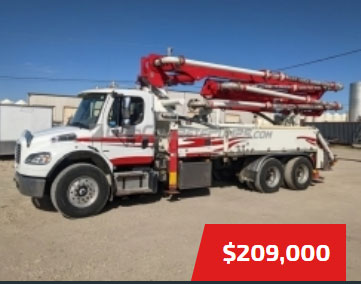

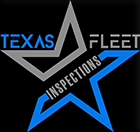
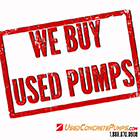





.jpg)
.gif)

.jpg)









.jpg)
